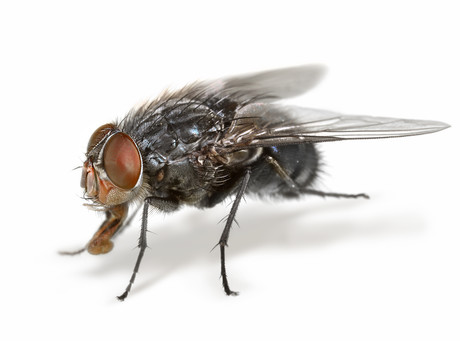Campylobacter rates forecast to double

Climate change could result in the rates of Campylobacter caused food poisoning doubling by 2080.
Although Campylobacter is one of the leading causes of foodborne illness worldwide it is not well understood. Its transmission is complicated and involved multiple hosts and reservoirs but one hypothesis is that house flies move the bacteria between reservoirs and humans.
Researchers at the University of Guelph used an infectious disease transmission model which describes Campylobacter dynamics in Ontario to project how disease dynamics may change due to increased fly activity and fly population sizes in climate change scenarios.
Fly populations flourish in summer and with climate change, fly populations are likely to grow as the environment warms.
After modelling fly population sizes under different climate change scenarios the researchers found that when fly numbers were increased by a quarter, there could be an accompanying 30% increase in food poisoning cases caused by Campylobacter. This model predicted that human disease may more than double by 2080 in this scenario.
The research funded by the Canadian Institute of Health Research, Ontario Veterinary College scholarship and Canadian Research Chairs Program has been published in Royal Society Open Science.
Abattoir safety program in WA raises more awareness
Usage of knives and guarding of machinery were some of the key areas of focus in a recent...
Antimicrobial resistance in Aussie raw retail meats remains low, FSANZ survey finds
FSANZ has released its findings from a national survey of antimicrobial resistance in more than...
Heat and Control brings coffee and tea processing solutions to MICE 2026
Heat and Control will showcase its latest coffee and tea processing, packaging and inspection...











